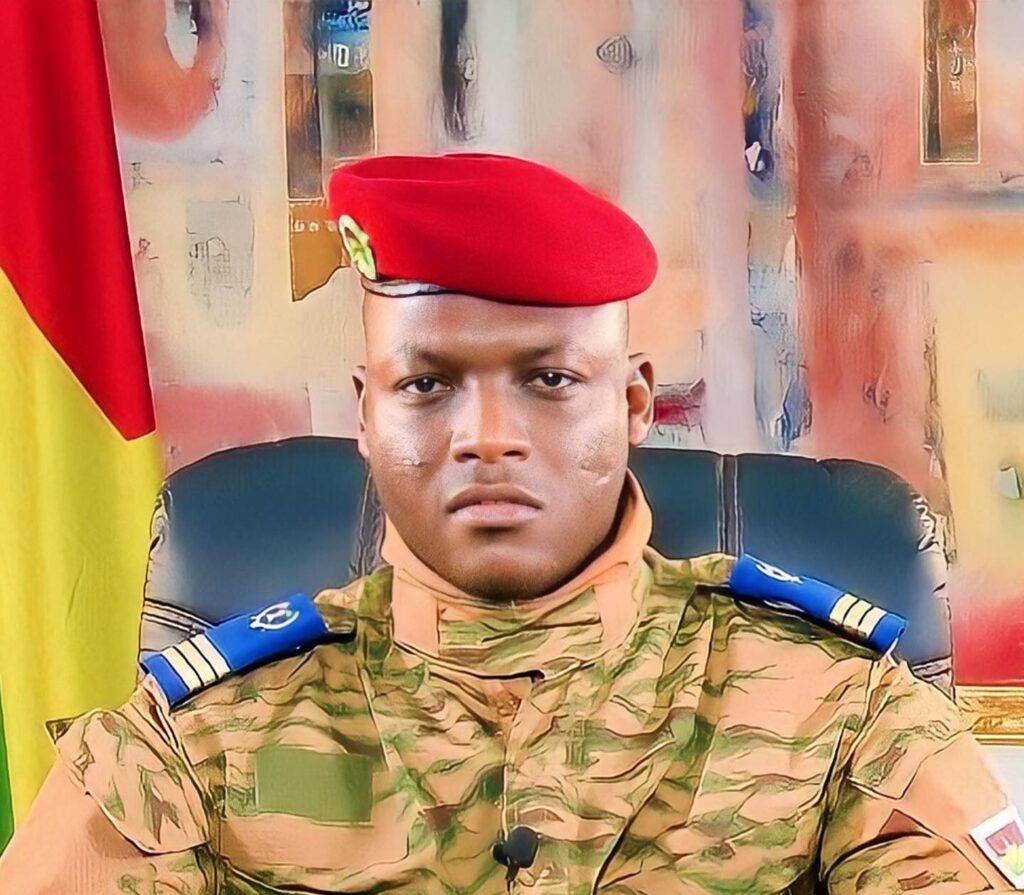
Captain Traore is strongly against same-sex practices/Lionscrib
Burkina Faso’s military leader Captain Ibrahim Traoré believes elections can only be conducted after dealing with insurgents in the country.
The military junta in Burkina Faso has announced that it will be extending its rule by five years, and also stated that current military leader Captain Ibrahim Traoré will be eligible to contest in the presidential election.
After a national consultation meeting in the country’s capital, Ouagadougou, on Saturday, the extension was announced.
Captain Ibrahim Traoré signed an amended charter which disclosed that on July 2, 2024, the West African country’s new transition period will commence.
“The elections marking the end of the transition may be organised before this deadline if the security situation so permits,” the charter said
Related: Burkina Faso’s Military Junta Expels French Diplomats
The new charter also stipulates that members of traditional parties will no longer be assigned seats in the country’s assembly on a quota basis, rather, “patriotism” will be the only criteria for choosing deputies.
Local media reports say Saturday’s decision happened swiftly in the absence of political parties during the start of the meeting.
Recall that the military seized power in Burkina Faso during a coup which ousted President Roch Kaboré in January 2022.
Lt. Col Paul-Henri Damiba took power after the coup and justified the junta on the basis that the civilian government had failed to deal with insecurity from militant Islamist violent groups.
Another coup took place in September 2022, ousting Col. Damiba as Captain Traoré seized power.
Capt Traoré said a second coup was necessary because Col. Damiba failed to deal with the insecurity, and promised to improve the situation of the country within “two to three months,” and also return to civilian rule in 21 months.
After issuing the pledge, he warned that conduction election is not “a priority” until government forces recaptures territories from the jihadists to allow citizens participate in the elections.
Captain Traoré has reneged on his promise of returning to civilian rule and joined his Malian counterpart Assimi Goita who also extended the military junta in Mali.
Since 2015, Burkina Faso has been confronted by security challenges emanating from the activities of jihadist rebels linked to Al-Qaeda and the Islamic State.
Thousands have lost their lives and many citizens have been displaced.
International and human rights organizations such as the United Nations and European Union have accused Burkina Faso of human rights abuses in the form of indiscriminate killings and forced disappearances in its fight against the insurgents.

 Corruption Is The Greatest Insecurity In Nigeria, Laments Anglican Primate Ndukuba
Corruption Is The Greatest Insecurity In Nigeria, Laments Anglican Primate Ndukuba  US Accuses Iran Of Attempting To Assassinate Donald Trump
US Accuses Iran Of Attempting To Assassinate Donald Trump  New Terrorist Group Lakurawa Kills 15 People In Kebbi State
New Terrorist Group Lakurawa Kills 15 People In Kebbi State  Donald Trump Wins The US Presidential Election
Donald Trump Wins The US Presidential Election  Watch Live: The US Presidential Election
Watch Live: The US Presidential Election  Trump And Harris Confident Of Victory As US Heads To The Polls
Trump And Harris Confident Of Victory As US Heads To The Polls